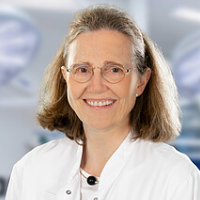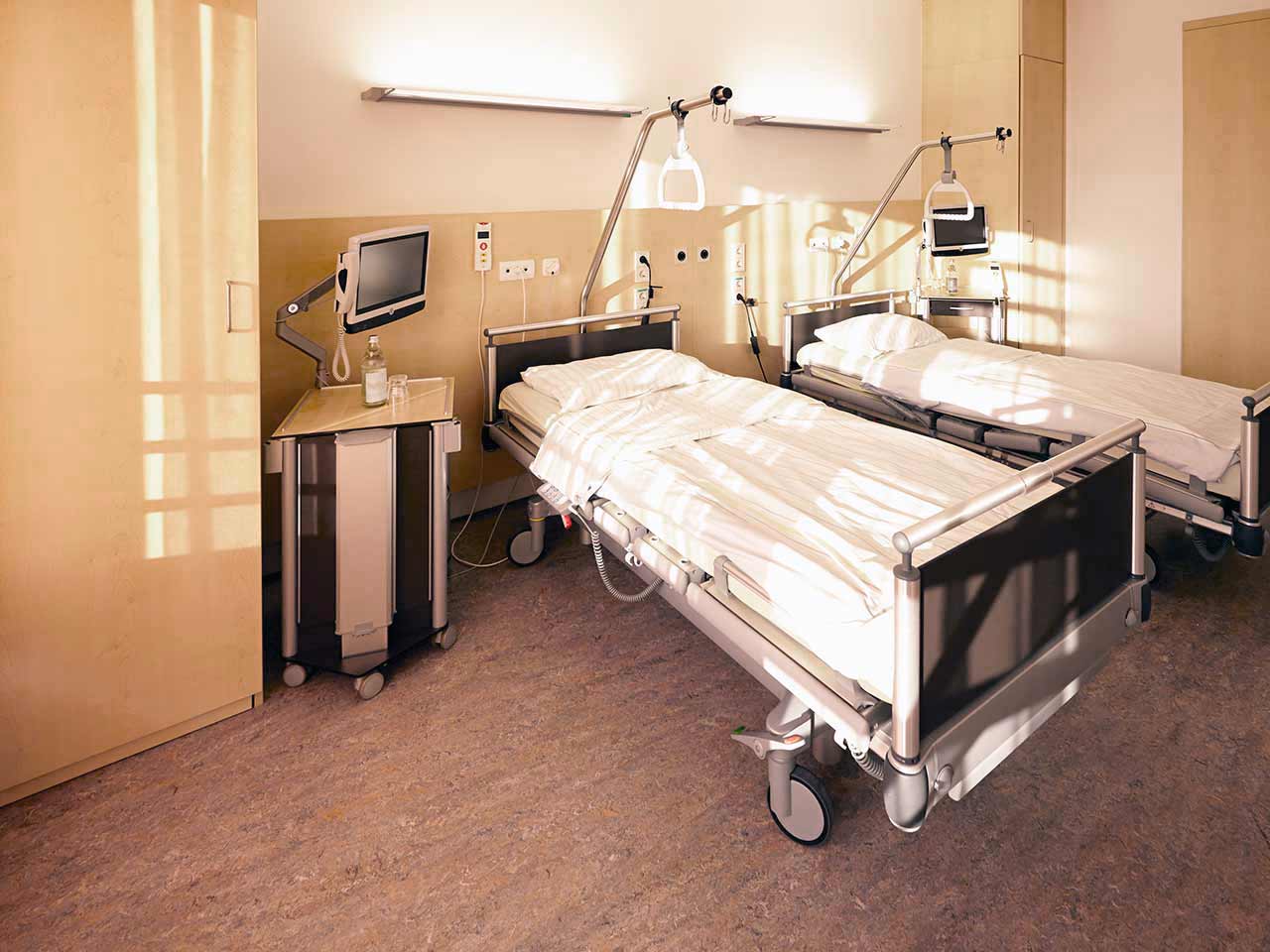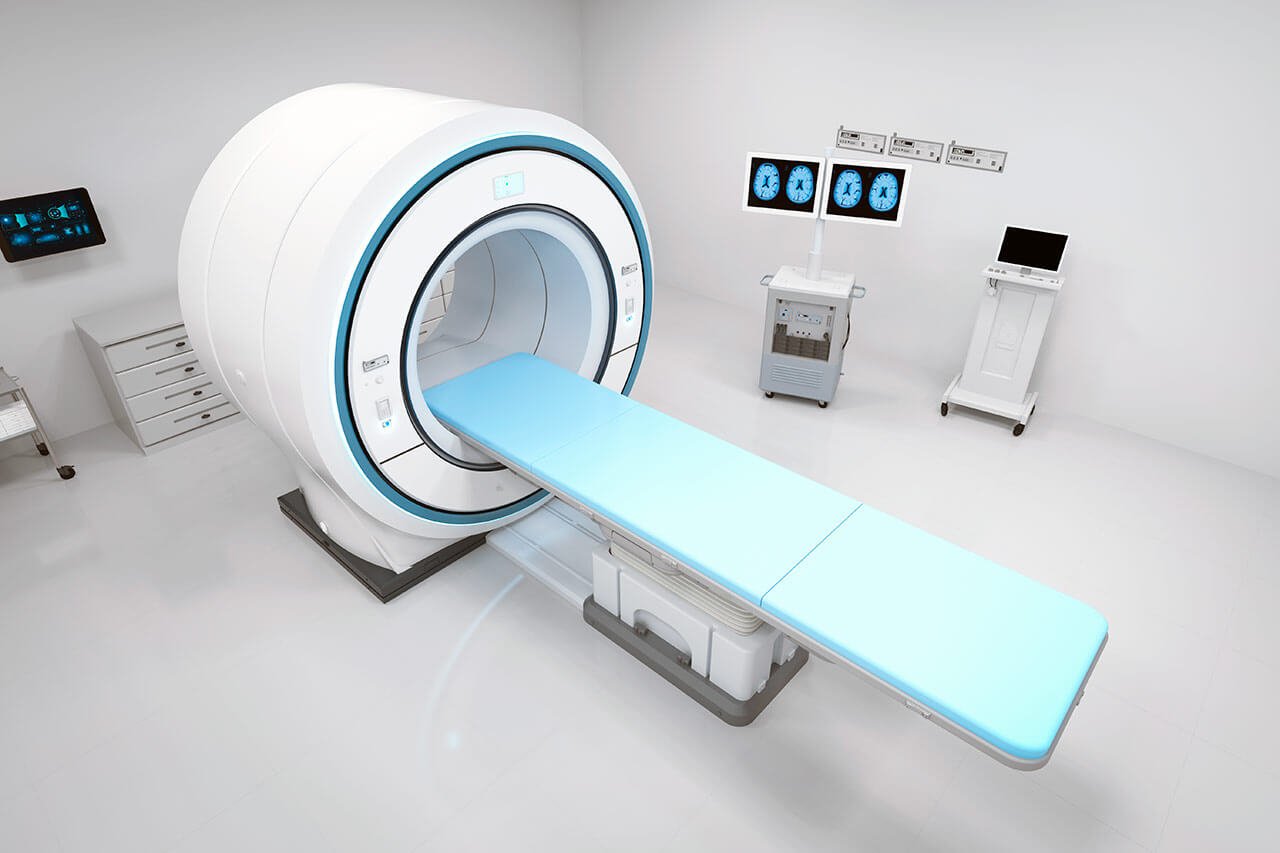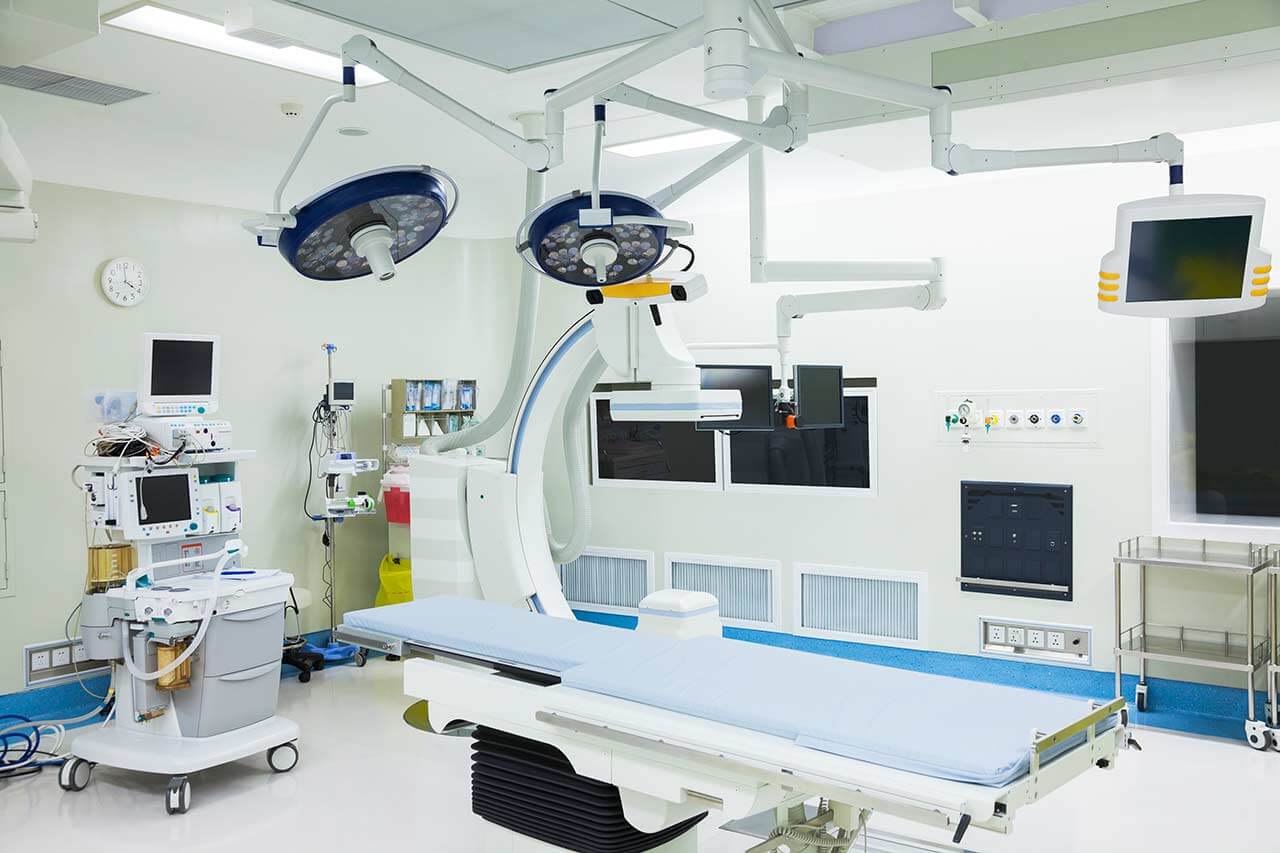
The program includes:
- Initial presentation in the hospital
- Case history taking
- General physical examination
- Review of medical reports
- Laboratory tests:
- Complete blood count
- Biochemical blood test
- Inflammation markers (CRP, ESR)
- Blood coagulation test (coagulogram)
- Breasts ultrasound
- Preoperative care
- Reduction mammoplasty
- Symptomatic treatment
- Control examinations
- Cost of the required medications and medical materials
- Nursing services
- Full hospital accommodation
- Elaboration of further recommendations
- Written report on the treatment results
Program description:
Our service starts at the airport. Our employee meets you at the airport and holds a sign with your name. In the individual folder you will find detailed information about the medical program and the upcoming operation.
Day 1
On the first day, during the initial consultation, you will share with your doctor your expectations and what exactly you would like to change. Also, the doctor will ask you in detail about what diseases and operations you have undergone, what medications you are taking, whether there are any allergic reactions.
Based on the initial information and the case history study, the doctor will check for the obvious contraindications for the intervention. You will receive a detailed description of the operation, possible methods of its performing, as well as undergo laboratory and instrumental examinations.
The doctor uses a special computer program to simulate the shape and appearance of the breast after the procedure.
The duration of the appointment is no more than two hours, then you can go to the hotel and relax.
Plan 7-10 days off after the surgery, as you will need to limit physical activity after the procedure.
Day 2
Breast reduction surgery is performed under general anesthesia, and you will sleep throughout the whole intervention. Before the operation, the anesthesiologist conducts necessary examinations in order to select the anesthesia that will be most suitable for you.
The operation itself usually takes about 60-90 minutes. The choice of a specific surgical method depends on your individual anatomical features and wishes, as well as on the recommendations of the surgeon.
A 4-5 cm incision is made under the breast. The surgeon always tries to make it minimally noticeable. Usually, the postoperative scar becomes almost invisible over time.
Days 3-7
After the operation, you should stay under medical supervision for 24 hours. You are guaranteed to receive thorough postoperative supervision by qualified medical personnel.
In the first days after surgery, the mammary glands are somewhat painful due to the intervention performed. Therefore, normal mobility, especially of the upper body, is limited. Usually, the doctor prescribes pain medications during this period.
During the operation, absorbable suture material is used, so there is no need to remove sutures additionally.
Day 7
You visit the plastic surgeon. He conducts a final examination and gives you recommendations for further rehabilitation. After that, you can stay on vacation or go home.
Service support
We fully support your trip.
We help with choosing and booking a hotel, booking tickets, preparing medical documentation.
We provide an individual medical coordinator-translator.
Transfer airport - clinic - airport.
A consultant physician oversees and coordinates the entire program from your first visit and for 3 months after the end of the program
We also provide information support within six months after the operation.
Required documents
- Medical records
- Photo of the target body region
Service
You may also book:
 BookingHealth Price from:
BookingHealth Price from:
About the department
The Department of Adult and Pediatric Otolaryngology, Head and Neck Surgery, Facial Plastic Surgery at the ViDia Hospital Karlsruhe provides the full range of treatment in the areas of its specialization using modern methods. The medical facility is deservedly proud of its rich history of more than 100 years. In addition, the department is the largest medical center of this kind in southern Germany. The health facility successfully treats common and particularly complex ENT pathologies. The department's medical team also specializes in the treatment of benign and malignant head and neck tumors. In this area, the department is certified in compliance with the requirements of the German Cancer Society (DKG). Plastic surgical procedures on the face and head, including otoplasty, rhinoplasty, and reconstructive interventions for facial nerve paralysis, are also performed in the department's operating rooms. Doctors treat patients of all age groups, from young children to the elderly. Medical care is provided both on an inpatient and outpatient basis. The department's operating rooms are adapted for minimally traumatic endoscopic and microsurgical interventions, after which there are almost unnoticeable scars, which is especially important in facial surgery. Doctors devote enough time to counseling patients and always take into account their needs and wishes. The department is headed by Prof. Dr. med. Serena Preyer.
The department regularly admits patients with ear diseases and hearing loss. The specialists most often perform surgery to resect benign and malignant neoplasms in the outer, middle, and inner ear. The department's otolaryngologists have vast experience in the treatment of Meniere's disease, in which an inflammatory process develops in the inner ear that leads to an increase in the labyrinthine fluid volume and intralabyrinthine pressure. This condition results in progressive deafness, tinnitus, dizziness, and balance disturbances. In most cases, drug therapy is sufficient to cure Meniere's disease, but there are situations when medications do not ensure the desired result. The primary surgical treatment for Meniere's disease is endolymphatic sac decompression. Another focus of the department's doctors is the placement of middle ear implants, such as the Vibrant Soundbridge and Osia, for patients suffering from hearing loss. These implants are usually indicated in clinical cases where conventional external hearing aids do not ensure a good therapeutic effect.
The department's team of otolaryngologists also specializes in the surgical treatment of tumors and malformations of the external nose, including rhinophyma. Surgical interventions on the nasal cavity and paranasal sinuses are performed in the department's operating rooms. The specialists perform nasal septum repair, nasal polyp removal, drainage of sinus purulent secretions in cases of sinusitis, and resection of nasal cavity tumors. Healthcare professionals perform these operations using endoscopic and microsurgical techniques, ensuring minimal trauma rates and excellent aesthetic results. For nasal concha reduction, a progressive method known as argon plasma coagulation is available. The procedure is performed on an outpatient basis under local anesthesia.
The department offers a wide range of services in the field of head and neck surgery, including the resection of neck cysts and fistulas, surgery to resect benign and malignant tumors of the larynx, pharynx, throat, and salivary glands, and the surgical removal of salivary gland stones. Surgeons also successfully perform the surgical removal of nasopharyngeal and palatine tonsils in children.
The department includes a specialized Center for Head and Neck Cancer Surgery, certified by the German Cancer Society (DKG), so the treatment of head and neck tumors is carried out in accordance with the recommendations of the professional society. The doctors at the center provide comprehensive medical care for patients with oral, lip, throat, nose, ear, salivary gland, facial skin, and neck cancers. A treatment regimen for each patient with cancer is developed within a weekly interdisciplinary tumor board. As a rule, the first step involves the surgical resection of the malignancy, with additional treatment options such as radiation therapy, chemotherapy, immunotherapy, and other conservative methods included in the treatment regimen. Surgical interventions are performed using microsurgical or endoscopic laser techniques. Plastic surgeons are also involved in the therapeutic process, if required. Their task is to eliminate appearance defects in the face and/or neck with autologous grafts.
The department's main clinical focuses include:
- Otolaryngology
- Treatment of ear diseases
- Surgical treatment of outer, middle, and inner ear tumors
- Surgical repair of ear malformations
- Surgical treatment of exostoses and other auditory canal diseases
- Surgical treatment of inflammatory middle ear diseases
- Surgery for hearing loss after accidents, ear deformities, otosclerosis, tympanosclerosis, and inflammatory processes
- Surgical treatment of Meniere's disease and other inner ear diseases
- Placement of Vibrant Soundbridge and Osia middle ear implants
- Surgical treatment of ear diseases in children
- Removal of nasopharyngeal tonsils with tympanic membrane incision
- Tympanostomy tube placement
- Implantation of bone conduction hearing devices
- Middle ear surgery
- Middle ear implant placement
- Cochlear implantation
- Treatment of nasal and paranasal sinus diseases
- Surgical treatment of external nasal tumors
- Surgical repair of external nasal malformations
- Surgical treatment of rhinophyma
- Surgical treatment of nasal polyps
- Surgical treatment of sinusitis
- Surgical treatment of traumatic nasal injuries
- Treatment of orbital diseases
- Surgical treatment of orbital tumors
- Surgical treatment of orbital fractures
- Treatment of ear diseases
- Head and neck surgery
- Treatment of benign head and neck diseases
- Surgical removal of neck cysts and fistulas
- Tracheotomy
- Surgical removal of benign tumors of the larynx, pharynx, throat, and salivary glands
- Surgery to improve voice for vocal cord paralysis
- Surgical removal of nasopharyngeal and palatine tonsils in adults and children
- Surgical removal of salivary gland stones
- Treatment of malignant head and neck tumors
- Surgical and conservative treatment of oral cancer
- Surgical and conservative treatment of lip cancer
- Surgical and conservative treatment of throat cancer
- Surgical and conservative treatment of nasal cancer and paranasal sinus cancer
- Surgical and conservative treatment of salivary gland cancer
- Surgical and conservative treatment of facial and neck skin cancer
- Surgical and conservative treatment of ear cancer
- Surgical and conservative treatment of cancer of unknown primary
- Treatment of benign head and neck diseases
- Facial plastic surgery
- Scar revision
- Otoplasty
- Reconstructive plastic surgery after facial paralysis
- Removal of skin neoplasms on the face, external nose, and skin of the neck and ears, followed by reconstructive plastic surgery
- Other medical services
Curriculum vitae
Higher Education and Professional Career
- 1978 - 1984 Medical studies, University of Hamburg, Germany.
- 1983 Internship, Mayo Clinic, Rochester, Minnesota, USA.
- 1984 Board certification in Internal Medicine, Germany.
- 1985 Thesis defense, University of Hamburg, Germany.
- 1984 - 1985 Postdoctoral Fellow, MRC Lipoprotein Team, Hammersmith Hospital, London, England.
- 1985 - 1990 Residency, Department of Otolaryngology, University Hospital Cologne, Germany.
- 1986 Visiting Senior Research Fellow, Karolinska University Hospital, Stockholm, Sweden.
- 1989 Board certification in Otolaryngology, Germany.
- 1990 Associate Professor, Department of Otolaryngology, University of Tuebingen, Germany.
- 1992 Senior Resident, Department of Otolaryngology, University Hospital Tuebingen, Germany.
- 1992 Additional qualification in Allergology, Germany.
- 1996 Additional qualification in Plastic Surgery.
- 1996 Visiting Senior Research Fellow, National Institute on Deafness and Other Communication Disorders, Washington, DC, USA.
- 1997 Habilitation in Otolaryngology, Professorship, Germany.
- 2001 Certified Specialist in Special Otolaryngologic Surgery, Germany.
- 1999 - 2008 Deputy Head, Department of Otolaryngology, University Hospital Tuebingen, Germany.
- Since 2000 Director, German Academy of Otolaryngology, Germany.
- 2004 Certificate in Healthcare Management for Head Physicians, Mibeg Medical Institute, Germany.
- Since 2006 Professorship in Otolaryngology, University of Tuebingen, Germany.
- Since 2008 Head Physician, Department of Otolaryngology, Hospital Diakonissenkrankenhaus Karlsruhe, Germany.
- Since 06.2016 Founding of the Otolaryngology Center Karlsruhe.
- Since 07.2016 Head Physician, Department of Adult and Pediatric Otolaryngology, Head and Neck Surgery, Facial Plastic Surgery, ViDia Hospital Karlsruhe, Germany.
Awards and Honors
- 1984 Dr. Martini Award.
- 1996 Attempto Award, University of Tuebingen.
Memberships in Professional Societies
- German Society of Otorhinolaryngology, Head and Neck Surgery (DGHNO).
- German Academy of Otolaryngology, Head and Neck Surgery.
- American Association for Research in Otolaryngology.
- Society of German Natural Scientists and Physicians.
- Professional Association of German Otorhinolaryngologists.
Photo of the doctor: (c) ViDia Kliniken Karlsruhe
About hospital
The ViDia Hospital Karlsruhe is a modern medical facility with a rich history and traditions. The medical complex is an academic hospital of the University of Freiburg, granting patients access to advanced university medicine and the very latest therapeutic developments. The hospital first opened its doors in 1851 and, since then, has maintained a leading position in the European medical arena. The health facility offers a state-of-the-art technical base, comfortable infrastructure, and highly qualified doctors. All this allows the hospital to provide patients with top-class healthcare in accordance with modern standards. In addition, the hospital's team honors Christian traditions, emphasizing a humane attitude towards the patient and striving to provide understanding and support.
The hospital employs a large team of specialists, consisting of over 3,200 staff members, including 400 highly qualified physicians. The medical team admits more than 50,000 inpatients every year, and about 100,000 patients are diagnosed and treated on an outpatient basis or in a day hospital. More than 3,000 babies are born in the maternity rooms of the Department of Obstetrics every year. More and more patients, including those from abroad, come to the hospital for medical care annually.
The hospital has 24 specialized departments with 25 highly certified, narrowly focused centers integrated into them. A large Cancer Center certified according to the German Cancer Society (DKG) standards also operates here. Thus, one of the main clinical focuses of the medical complex is cancer treatment. The hospital also excels in other specialties, such as general surgery, abdominal surgery, thoracic surgery, orthopedics, cardiology, endocrinology, otolaryngology, pulmonology, gastroenterology, and others. There are 37 operating rooms available here for surgical treatment, the equipment of which corresponds to the highest technical level. Priority is given to performing minimally traumatic operations using minimally invasive, endoscopic, arthroscopic, and endovascular techniques.
The ViDia Hospital Karlsruhe enjoys a high reputation in Germany and far beyond its borders. The health facility successfully combines innovative medicine with Christian values, thanks to which the patient receives not only effective treatment but also care, understanding, and support.
Photo: (с) depositphotos
Accommodation in hospital
Patients rooms
The patients of the ViDia Hospital Karlsruhe stay in comfortable single and double rooms with modern design. Each patient room has an ensuite bathroom with a shower and a toilet. The standard room furnishings include an automatically adjustable bed, a bedside table, a table and chairs, a wardrobe, a telephone, a TV, and a radio. Wi-Fi access is also available in the patient rooms.
Patients can also be accommodated in enhanced comfort rooms. These rooms are very spacious and are additionally equipped with a safe, a mini-fridge, and upholstered furniture.
Meals and Menus
The patients of the hospital are offered three tasty meals a day: breakfast is served buffet-style, and there are several set menus to choose from for lunch and dinner.
If, for some reason, you do not eat all of the foods, you will be offered an individual menu. Please inform the medical staff about your dietary preferences prior to treatment.
Further details
Standard rooms include:
![]() Toilet
Toilet
![]() Shower
Shower
![]() Wi-Fi
Wi-Fi
![]() TV
TV
Religion
There are several chapels on the territory of the hospital. Regular Catholic and evangelical services are held here. Patients can also visit one of the chapels at any time to find a quiet place to pray, if desired.
Accompanying person
Your accompanying person may stay with you in your patient room or at the hotel of your choice during the inpatient program.
Hotel
You may stay at the hotel of your choice during the outpatient program. Our managers will support you for selecting the best option.





